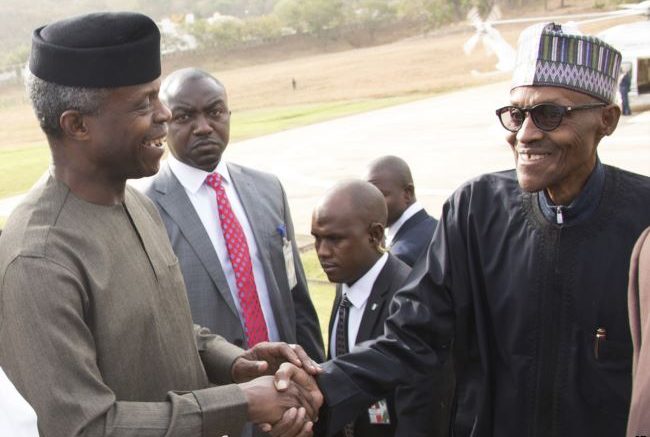ABUJA – Nigeria’s economy is the “biggest challenge of all” for the government, the acting president said on Monday at an event to celebrate two years of the administration of President Muhammadu Buhari, whose repeated periods of medical leave have nevertheless raised concerns.
The economy has contracted for five quarters in a row, data showed last week, in Nigeria’s first recession in 25 years. The downturn has been driven by low global oil prices, low production levels – output has fallen by as much as a third – and a shortage of hard currency.
Buhari’s absence is adding to the tension, and last week the ruling party’s leader, Bola Tinubu, warned against coup threats. Buhari has been in Britain on medical leave for large chunks of the year, most recently leaving on May 7, handing over duties to his Vice President Yemi Osinbajo.
“Let me first express just how concerned we have been, since this administration took office, about the impact of the economic difficulties on our citizens,” Osinbajo said at the event, which marks the halfway point for Buhari’s first term, in the capital of Abuja.
The government is trying to lift Nigeria out of recession by shifting away from its dependence on oil and imports, investing heavily in infrastructure and focusing on industries like agriculture, Osinbajo said.
But economists have expressed skepticism over the government’s scheme known as the Economic Recovery and Growth Plan, saying it amounts to little more than a wishlist rather than a roadmap offering concrete solutions.
The acting president, speaking halfway through the year, also said the budget for 2017 would soon be signed into law.
Officials had promised that the process this year would not take as long as last year when the 2016 budget was signed in May, but the government has missed those targets.
– Reporting by Felix Onuah; Writing by Paul Carsten; Editing by Hugh Lawson I Reuters

